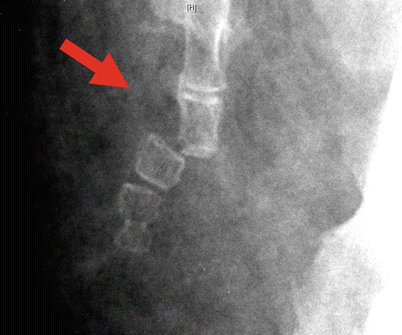

May be warm or swollen over the muscle bellyĪlthough not as common with a direct fall, occasionally you can stretch or pull one of the peripheral nerves that run through or near the pelvis.

Painful to change positions such as sit to stand Painful to contract or stretch the muscle Tender to touch and/or a spasm sensation ( tightness) of the muscle A pelvic health expert can determine those muscles involved and will create an exercise and home program based on your needs. In some cases, gluteals, hip rotators, lumbar paraspinals, hip flexors, hip adductors or abdominal wall may also be affected. The levator ani muscles of the pelvic floor help support the bony pelvic ring and may also contribute to buttock pain. The small coccygeus muscle ( the muscle that wags our ‘tail’) can spasm or become painful following a fall. There are more skeletal muscles than you think surrounding your tailbone and pelvis, and they can be stressed with a fast fall or hard landing here as in other parts of the body. With a direct trauma, such as a fall, the muscles of the pelvic floor, buttocks, hips, lumbar spine and abdomen may tighten to protect the joints and ligaments. If your X-ray is clear and special tests are negative you may be dealing with a tried and true muscle strain. Running or more vigorous exercise is painful Muscles Standing on one leg to dress may be difficult or painful Painful to sit, change positions, walk or go up or down stairs Symptoms:ĭull, achy pain localized and/or referred to a larger area such as the buttocks, back, hips, groin or inner thighs A direct fall and trauma to the pelvis can stretch or sprain a ligament similar to an ankle sprain and symptoms with positions or activities that place added demand or stretch on ligament fibers. Ligaments in your pelvis connect the pelvic bones to one another, and falls can strain some of these supportive structures, both in the backside along the sacroiliac joint and centrally at the tailbone, as well as in the pubic region in the groin. The pelvis is surrounded by many dense and strong pelvic ligaments. Redness and swelling may occur initially if acute inflammationīowel movements and/or intimacy may be painful Ligaments Sharp or dull ache in the area of the joint or referred to the buttocks, hip or groin A pelvic health physical therapist will conduct a thorough diagnostic exam to determine the source of your pain and create a specialized plan to get you back on track.

The joints can become inflamed and the surrounding muscles of the pelvis, hips and spine that protect and move the joints can spasm or become tight and weak. Painful bowel movements and/or intercourse JointsĪ fall on the bum may affect many joints in the pelvis, including the sacrococcygeal joint (the tailbone), the sacroiliac joint ( SIJ), pubic symphysis, lumbar spine and hips. Symptoms:īruise may occur in the area of the coccyx A pelvic health physical therapist can help you restore mobility and strength to get you back to sledding and other activities before the next snowfall. Once the bone is healed you may still experience pain at the tailbone as well as the surrounding muscles (back, hip and pelvic floor muscles & ligaments) that protect the joint. If you have a fall or trauma and suspect a broken tailbone, your doctor can do an Xray to determine whether you have a fracture. The coccyx is a small bone at the end of your sacrum and is susceptible to fracture with a direct fall, especially on ice or other hard surfaces. Most of us will ride out a slip and fall without lasting injury, but if you find yourself still nursing your tailbone in the coming days and weeks, fear not: we can help you get back to sitting and moving again in time for our next Winter storm! Fracture The downside of our Southern snowstorms is that they often have a layer of ice, which means that there’s a chance that some of you have sore bottoms after biting it on a sled jump or just getting down your front steps. A North Carolina snow event doesn’t happen very often! If you’re like us, winter weather is too good to resist and you’ve been out sledding, playing in the snow (or running- you know who you are!) and making the most of the season.


 0 kommentar(er)
0 kommentar(er)
